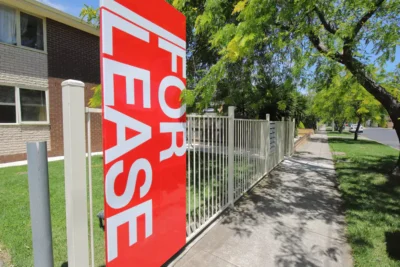Why Aussie authorities are now cracking down on illegal foreign buyers

Lawbreakers will face jail time and USD100k fines
There has for some time been a growing discontent about the direction in which Australia’s property market is headed. The average median house price rose by 9.9 percent in eight capital cities for most of last year, but in Sydney alone the annual price growth has reached 15 percent, per a recent announcement by the Reserve Bank of Australia.
Critics claim that some rich overseas investors – some of whom could be purchasing property illegally outside the established rules of the Foreign Investment Review Board (FIRB) – are pricing citizens out of their own market, although there had been insufficient evidence that foreign buyers definitively outbid local first-time buyers, according to the November 2014 findings by the House of Representatives Standing Committee on Economics.
The latest Savills data estimates that foreign investors only make up a small number of the 30 percent of buyers in the owner-occupier segment of market.
Nevertheless, following a review of at least 12 recommendations put forward by the house committee, the Australian federal government in May 2015 declared that foreign investors who illegally purchase homes would be fined or face a prison sentence of up to three years, giving a moratorium for violators to come forward by 30 November of this year.
“The policy is actually designed to increase Australia’s housing stock, but lack of enforcement over recent years has threatened the integrity of the framework,” said Michelle Ciesielski, associate director of Knight Frank Residential Research.
Per the reinforced ruling, individuals who break the foreign investment law on real estate must pay a fine of AUD127,500 (USD100,050), while companies will be fined for AUD637,000 (USD506,534), or face the jail time. Local agents who aid alien offenders will also be punished for the investment crime.
The country’s Prime Minister Tony Abbott told the media in Sydney at the time of the announcement that the civil penalties were in fact being proposed to encourage foreign investors, while also restoring local confidence in the market.
“We want to ensure that illegal foreign investment is not unnecessarily driving up prices,” the prime minister explained. “We want to maximise the opportunities for Australians to buy a home at the best possible price.”
Many industry insiders welcomed the news, including Property Council of Australia, which emphasised the need for the federal government to address the issue of making homes more affordable for Australians, rather than simply punishing lawbreakers.
“The government continues to stress that they encourage investment into Australia, given its significant role in stimulating the local economy, however, are wary that foreign investment should not disadvantage local Australian buyer,” said Ciesielski.
Australian property industry expert Dominique Grubisa, CEO of Australian Investments & Migration Pte Ltd (AIM), which aims to educate foreign buyers on the legal path of acquiring Australian property, said that the proposed enactment may have more to do with appeasing the local market, who felt that the government was doing little to enforce the law, than deterring the foreign investor market.
“Sophisticated investors will continue to invest as before but others may misconstrue the government intent. It is not to stop foreign investment but rather to ensure it is done in accordance with the law,” she explained.
Others considered the announcement very timely, as the Australian Taxation Office revealed in June 2015 that it was investigating 195 cases where foreigners might have acquired property illegally, or have been using Australian luxury real estate to launder money, as reported in The Australian newspaper.
Property consultancy firm Anthill Realtors, which currently markets three Melbourne-based developments to Asian buyers, said: “It was the right thing for the Australian government to do; given that no one has been prosecuted for the violation of this rule since 2006, it is about time they step up their game. We feel this will also ensure that there are more ethical developers and real estate agents in the Australian property industry.“
While the law on real estate ownership for foreigners has been in place for 40 years since the establishment of the Foreign Acquisitions and Takeovers Act 1975, there is still some confusion regarding foreign ownership of residential properties in Australia, where foreign buyers are currently limited to purchase off-the-plan (OTP) properties, or apply for FIRB exemption for existing homes – “which does not appear will be granted,” per Justin Brown, chairman of residential projects at CBRE Australia, “though that has always been the law.”
Many experts believe that the stricter penalties under the current 1975 system, which is tied to Taxation Administration Act 1953, an Instrument under the Migration Act 1958 and other relevant legislation, are only being enforced in order to catch illegal investors and will not impact the overall overseas investor sentiment.
“The bonafide buyers will still see Australia as a place to invest, whether it be for lifestyle or investment” said Nigel Napoli, Australian director at Savills Projects. “The proposed new fines are only putting in place clarity on a system, which wasn’t working to the current market. It is not about selling to the highest bidder nor is it about deterring or creating an environment that favours one or the other.”
Knight Frank’s Ciesielski echoed this sentiment, saying: “Enforcing penalties and introducing application fees, will not necessarily result in a surge in first time buyers.”
As the federal government makes further improvements on the implementation of legal ownership by foreign investors in residential real estate, experts recommend that legally compliant buyers should not be afraid to enter the Australian market.
“Just be clear on the law of what can or cannot be purchased,” recommended CBRE’s Brown. “We need foreign investment to help drive construction as we have a chronic housing undersupply without continual construction growth the shortage will lead to greater price escalation.”
How much have prices in increased? Is it just pricing that’s upsetting people? Who’s upset, buyers? Where’s the comment to back that up?
Recommended
Philippine real estate sees growth in regional markets despite challenges in Metro Manila
Amid pressures, developers and investors are capitalising on a range of opportunities to drive growth in the nation's real estate sector
Bali leads the charge in Indonesia’s rental boom while other regions struggle to keep pace
The rental market is soaring in Bali due to its rich cultural heritage and island charm, while other regions of Indonesia are experiencing less success
Rental markets surge in Asia as digital nomads find new opportunities with visa reforms
As countries in Asia roll out customised visa programmes, rental markets are thriving with the influx of remote workers
China’s hospitality market thrives as developers sell off assets to spark recovery
China’s indebted developers are divesting hospitality assets to generate growth and enhance the outlook of the country’s real estate market







